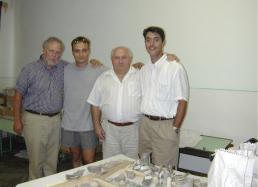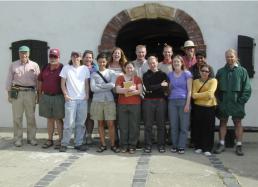The Körös Regional Archaeological Project
A multidisciplinary, collaborative, international research project, the Körös Regional Archaeological Project is directed by Dr. William Parkinson of The Field Museum and Dr. Attila Gyucha of the Field Service for Cultural Heritage, Hungary. Richard W. Yerkes of the Department of Anthropology, Ohio State University is the field director.
The project brings together an international team of geophysicists, geologists, geographers, botanists, and other specialists to understand the various social changes that occurred in the Körös River Valley on the Great Hungarian Plain since the end of the Pleistocene (last Ice Age).
Project Sites
Since 1998, the Körös Regional Archaeological Project has been conducting systematic research into the organization of Neolithic and Copper Age settlements near the town of Vésztő in southeastern Hungary. As a result of this research, the economic and political organization of Copper Age societies are gradually becoming better understood, providing clarity regarding the nature of the changes that characterize the end of the Neolithic period in the region.
In 2010, a new phase of the project began, which involves studying earlier tells that were established during the Middle Neolithic Period. The goal is to learn more about the environmental, ecological, and social factors that led to the founding of tells, which will help shed light on the political and economic processes that characterize the beginning of the Neolithic period in the region.
To learn more about the many institutions and individuals who have helped to make the project a success, please download a PDF version of the Körös Regional Archaeological Project Team.



